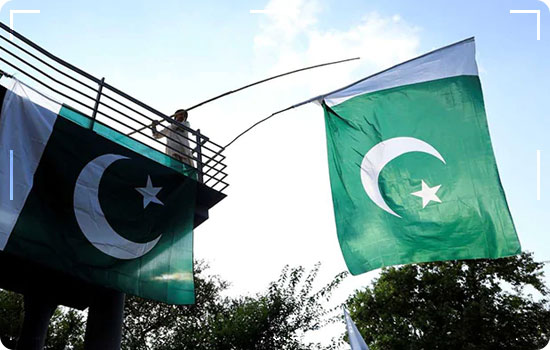According to local tourism companies, Pakistan’s religious tourism industry is estimated to be worth between US$600 million and US$1 billion. Due to the prevalence of coronavirus and the resulting restrictions, it has already suffered huge economic losses.
Stakeholders told that the country’s global pilgrimage market and Umrah market have successfully generated about Rs 76.8 crore this year, compared with Rs 245 crore in 2019.
The Pakistani and Umrah operators in Pakistan serve approximately 2 million people each year.
“Religious tourism accounts for 75% of the country’s tourism industry. These loyal people go to the pilgrimage and the number of people is between 1.7 and 1.8 million per year. About 200,000 tickets are issued for the pilgrimage.” Hanif Rinsh International Air Transport Chairman of the Planning Committee The association’s joint agency revealed: “Otherwise, about 400,000 to 500,000 people visit Iran or Iraq.”
He added: “Due to continued restrictions on the flow of nearly 2.5 million people from Pakistan, the entire business is now stagnant.” “This also affects the relevant sectors of our economy.”
According to industry experts, religious tourism created 245 billion rupees for the country in 2019 after excluding income from Iran and Iraq.
“In 2018-2019, 1.8 million people travelled to Kazakhstan and Umrah at Rs 80,000 per capita and mobilized Rs 14,400 crore. Travel and tourism professionals, members of the Administrative Committee of the Karachi Chamber of Commerce and Industry, Faisal Sharif told that the number of pilgrims was Rs 180,000 and helps to generate 1,010 crores (KCCI).
He said: “Considering that before COVID-19 became popular, the average package price per person was Rs 102,500, this year, about 750,000 people went to Umrah and spent Rs 76.8 billion,” he added: “The estimated total The market in US dollars is between 600 million dollars and 1 billion dollars.”
Saudi Arabia announced on Monday that pilgrims should restrict pilgrims from spreading the virus and prevent foreigners from entering this year’s annual ceremony, except for different nationalities who already live in Saudi Arabia.
Pakistan’s Minister of Religious Affairs, Noorul Haq Qadari, praised Saudi Arabia’s decision as “difficult and wise” and added that it is fully in line with Islamic teachings.
Some travel agencies in the country expect the situation to improve by the end of 2020.
Sharif said: “Because of the epidemic, the travel ban around the world has caused us to suffer heavy economic losses.” “After Ha this year, things may have eased and we can make up for some losses.”
According to people familiar with the business, about 900 Hajj pilgrimage groups and organizers work in Pakistan and employ thousands.
These Hajj pilgrimage groups work as small projects and employ 4 to 5 people to support their families. Although some major companies have retained their workforce, many people in the country related to religious tourism have also lost their jobs,” Muhammad Bilal Faseeh, coordinator of the Central Government of Pakistan’s Federal Chamber of Commerce and Umrah Service Committee ).
He added: “The restrictions imposed by the infection not only affected the country’s religious tourism operators but also affected airlines, Ihram sellers, Abayas, food suppliers and other related industries.”
Pakistan has launched a loan plan to provide loans to employers who want to retain their workers during the recession, and the country’s central bank has reduced the interest rate on loans to pay wages to 3%. However, the travel agency emphasized that the program is not easy to use.
Yahya Bolani, the former head of the Pakistan Travel Agents Association, told: “Banks still put strict demands on security when they provide loans to us. We found it difficult to maintain financial conditions. How do we generate security?”
He added: “we wrote a letter to the Prime Minister who proposed the idea of providing soft loans to the company”.









